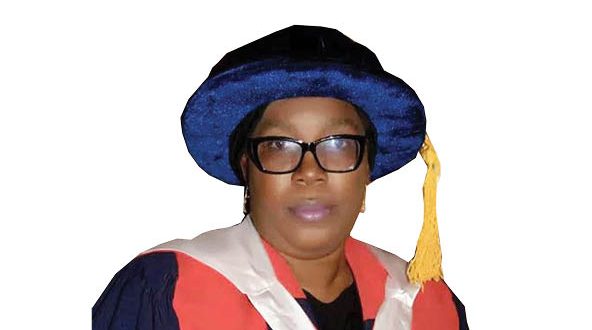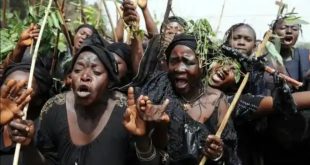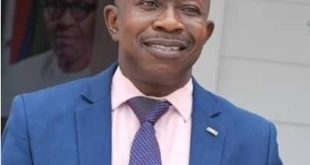In this interview, a security expert and Professor of Criminology at Kaduna State University, PROFESSOR HAUWAU EVELYN YUSUF discusses with Olumide Olusegun on the prevailing insecurity challenges in Nigeria, the conditions of the country’s correctional facilities, the issue of the death penalty, and other key security concerns.
The increasing rate of kidnapping in the country is worrisome. How would you describe the situation?
Kidnapping in Nigeria has become synonymous with eating food daily because, to a huge extent, you hear of one or two persons being kidnapped in any part of the country. In those days, such things were said to happen in certain areas. Now, kidnapping is prevalent in all parts of the country and more pronounced than before. Nigerians have woken up to a reality where they do not know when and where they could be picked. Even while you are sleeping in your room, you could be taken. So, the security threat is much more serious. The annoying thing is that they kidnap, ask for ransom, the ransom is paid, and then the victim is still killed. It has also reached the point of insider kidnapping. In the past, people who kidnapped may not have known you, but now, kidnapping has become a relative-driven issue, to the extent that uncles kidnap their nieces and nephews, sisters kidnap their brothers, and children kidnap their parents. We heard of a case in Zaria where a girl was kidnapped by her uncle, who used a razor blade to slice her throat, killing her. He had requested N500,000 or so from her parents, knowing their condition, yet he killed her. So, the question is: how safe are we? A typical Nigerian, just going about their daily activities, is at risk of being whisked away by someone, whether known or unknown. We have gotten to a point where, as you walk on the streets in Nigeria, you are constantly checking your back to see if someone is following you. It is not just when you are walking; you can be stopped while driving your car, and it’s not because they want to take your car, but because they want you as a person. This is the situation we are in, and the implications for our national security are unimaginable. People no longer feel safe to travel on our roads. People no longer feel safe even in their own homes. And the annoying thing is that the economic situation in the country is worsening our plight. Sometimes, the family of the kidnapped person may not have the resources to pay the ransom. Imagine kidnapping someone who hasn’t eaten in two days—how can their family pay the ransom? This is where we are. There is an urgent need for sensitization, mobilization, and action by the governing bodies in the country to curb this menace.
How would you describe the level of response of the government at all levels to this menace of kidnapping?
The government may think they are doing their best, but in the eyes of the ordinary Nigerian, who believes that democracy is government by the people and for the people, something needs to be done. There is a need for our government to be more responsive to our situation. Nigerians are in pain. Psychologically, we have been tortured. Economically, we have been wounded. Emotionally, we are sick. Every one of us in Nigeria is undergoing some form of trauma. In fact, you will find the same person experiencing more than two or three forms of trauma. Once a kidnapping happens, another person is re-traumatized, and that person is already in trauma. You just never can tell what’s coming next. I believe the Nigerian nation could get a better response from its governing bodies. And when I say governing bodies, it cuts across from the local level to the national level. Nobody is blaming any particular leader, but we are saying we need to be more proactive. We should take decisive actions on what is going on in the country. I have always been an advocate who has been in love with “Nigeria We Hail Thee” because I believe that the content of whatever anthem you sing affects your being. So, when we sing the ‘Arise’ anthem, I always say, I wish the one we sang in primary school was still being sung. Now that we have this anthem, let us see them caring for us as a nation. Let us begin to see the effect of our standing in brotherhood, despite our differences in language, religion, and everything else. Let us see how we can bond. And you know, a society that is at peace is most likely a society that will be safe. So, if we can unite, our security will improve. This means ensuring that the immediate needs of every Nigerian are catered for, and the number one need of every human being is security. If you are not secure, you cannot eat. So, our government bodies should please make deliberate attempts to keep us safe.
In most cases, the kidnappers demand ransoms, collect them, and they are not traceable by the security agencies. Why is this so?
Firstly, I don’t know and am not standing in for anybody. But I think they may not have the equipment to track kidnappers. That is just an excuse. Ideally, they are supposed to track the money paid, but you know, the kidnappers are smart. They don’t take bank transfers. No matter how much money they request, if you are paying, they demand cash, which is not traceable to any bank account. And there are more than one million thieves. Otherwise, the lines with which they make these calls could have been used to track and apprehend them. So, perhaps, it is the methodology they are using that makes it difficult for our security agencies to track them. That is just my thought, giving our security agencies the benefit of the doubt.
Some have said kidnapping is now a booming business in Nigeria. Do you think there is a political undertone to this menace?
I don’t know. This thing has been going on and on, crossing different regimes. So, it becomes difficult to say it is political. If during Jonathan’s time, they said it was political, then Buhari came, and kidnapping was still with us. Now, Tinubu has been there for over a year. So, it becomes difficult to conclude that it is political. If it was politically motivated, it would have ended when Buhari took over from Jonathan. So, it is very hard to say it is political. I would rather say it is more of a poverty-driven problem. Also, the fact that some people have gotten used to getting rich and living luxurious lives, whether they work or not, is a contributing factor.
On April 24, about 118 inmates escaped from the Medium Security Custodial Centre, Suleja, Niger State, due to a heavy downpour. How would you describe the situation where inmates escape from prison, as this is not the first time?
Jailbreaks have always been consistent with the correctional centers. There are a lot of factors that lead to or encourage jailbreaks. One, you go to the Nigerian correctional centers, and you will find people who have been in jail for years awaiting trial. Some of them have been there for 10 or 15 years. Also, it is not as if the conditions in the centers are okay. So, you find that such people, when they get any opportunity to escape, would take it. There is nothing as sweet as freedom. So, if they cannot get freedom legally, there is a tendency for them to get it by whatever means, even if it is costly. And so, if it was due to heavy downpours, does it mean that our centers are so porous that rain can open the gates or break the fences? What kind of fences do we have in our correctional centers? Who is there to monitor 24/7 what goes on among the inmates? Correctional centers are not supposed to be centers for hardship. Yes, they are meant to punish, but they are also meant to correct and change the inmate’s way of thinking and behavior. So, if you ask me, while there is the quest for freedom, there is also the issue of maintenance and the kind of treatment inmates receive while in custody. I wouldn’t say the inmates did something wrong, nor would I say they did something right. But I will say that the administration of the centers is at fault in many instances when there is a jailbreak.
What do you think can be done by the government and the administrators to ensure proper administration of the custodial centers?
There is a need for political will from the government. The correctional centers should be well-equipped, and there should be a working monitoring mechanism where someone is made responsible for the inmates at all times. Until the government puts such a mechanism in place to ensure checks and balances within the centers, we will not get anywhere. The administration of the correctional centers must begin to monitor. They should have a monitoring and evaluation mechanism where they know that someone who is supposed to have given something to an inmate at a certain time has done so, that these inmates are properly fed, and that they are being rehabilitated and not just confined.
You once advised that the Federal Government should deploy CCTV cameras in all correctional centers.
Do you think this would solve the problems even when there could be internal compromise among officials?
Yes, no matter what the compromise is, it will reduce the possibility of jailbreaks to the barest minimum. CCTV will have an impact if properly used. It works with electricity, and for continuous monitoring, there is a need for 24-hour availability of electricity. If you have a CCTV camera in your house and there is no electricity, will it work?
There are special prisons for VIPs in the custodial centers, and this has been reported to cost money. The special people pay a huge amount of money for these special cells in the custodial centers. What is your take on this?
It has always been a puzzle why we should have differential correction centers for people. If a person is a criminal, they should be treated as a criminal. As I said, the majority of the people there are awaiting trial. The fact that they pay to be put in some of these places is what I have not been able to address, and I don’t know what the need is.
It has been said that the correctional centers are not correcting inmates. Some leave the prison worse than they were, and in other cases, they get connected with other gangs. What do you think can be done to address such a situation?
That is because of the improper classification done in the correction centers. At the point of intake, the right thing is to classify the person you are bringing in to see which category they belong to, but in most cases, the space we have in the correction centers does not allow for proper classification of offenders.
So, what can be done?
Well, there is a need to improve the capacity of our correction centers for the proper classification of offenders. They need to improve this and ensure that offenders are properly classified to avoid lumping first-time offenders with condemned offenders. Also, there is a need to have enough personnel to handle the proceedings of the correction centers. It is also very important that CCTV cameras are put into proper use by mounting solar energy converters in such a way that they never go off.
The House of Representatives began a move to decongest the 244 correctional centers across the country recently. What strategies do you think can be adopted to decongest these centers?
There should be a visitation of these centers by renowned, honest judges to check those who have been awaiting trial for a very long time. They can do summary trials and release those who should not necessarily be in the correctional centers.
There are reports that some state governors are refusing to sign death warrants of criminals sentenced, which is contributing to prison congestion. Don’t you think this should be worrisome, and what do you think is the problem?
There have always been a lot of controversies around the death penalty, so I wouldn’t be surprised if a governor refuses to sign a death penalty. One reason is that the global community will say it is not correct. Another reason is that some people think it shouldn’t be done. So, if you ask me, it would be much better if we take care of sentences as they come and don’t delay justice. If there is a sentence, it should be carried out immediately, and court cases should not linger for too long. Perhaps, as a country, we should reprioritize cases that are meant for the death penalty and begin to execute those penalties if they are still in the centers.



